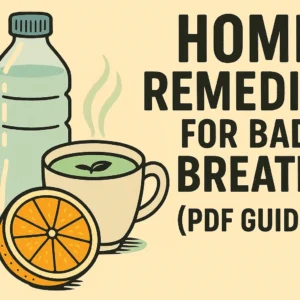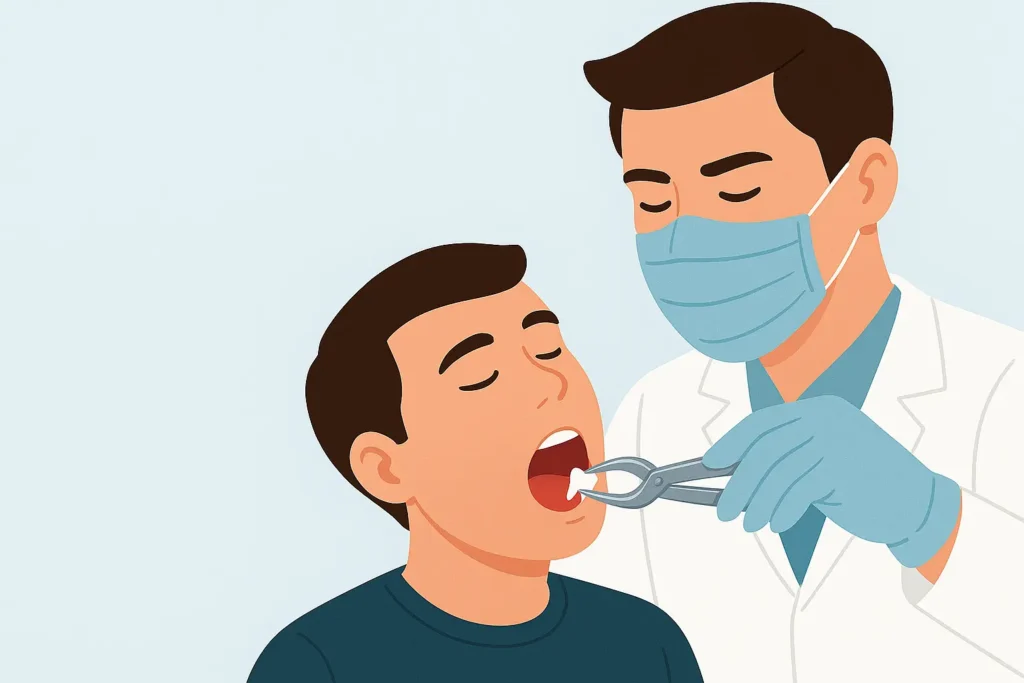Introduction
Undergoing a tooth extraction is a common dental procedure. Whether it’s for wisdom teeth, decay, or even crowding. While healing is usually straightforward, some people notice something unexpected afterward: bad breath.
Is it possible to get bad breath after a tooth extraction? Yes, and in fact, it’s not unusual. Here’s why it happens and what you can do about it.
Why You Might Experience Bad Breath After a Tooth Extraction
1. Blood Clot and Healing Process
After a tooth is removed, a blood clot forms in the socket to protect the bone and nerves while the site heals. This clot can have a metallic or unpleasant smell, especially in the first few days. It’s part of the body’s natural healing process and is usually temporary.
2. Dry Socket (Alveolar Osteitis)
If the blood clot becomes dislodged or fails to form properly, it can lead to a painful condition called dry socket. This exposes the bone and nerves, causing intense pain and foul-smelling breath. Dry socket usually occurs 2–4 days after the extraction and requires prompt treatment from your dentist.
3. Trapped Food and Debris
The extraction site creates an open space in your mouth, which can trap food particles and bacteria. If not rinsed properly (as directed by your dentist), this buildup can result in bad breath and even infection.
4. Infection
Infections after tooth extractions, though not extremely common, can cause swelling, pain, and a noticeable bad odor from the mouth. This may be accompanied by a bad taste, fever, or pus.
How to Manage and Prevent Bad Breath After Tooth Extraction
- Follow your dentist’s aftercare instructions closely—this includes proper rinsing and avoiding activities that could dislodge the blood clot.
- Gently rinse with salt water starting 24 hours after the procedure to keep the area clean.
- Avoid smoking, as it increases the risk of dry socket and slows healing.
- Stay hydrated and maintain a soft food diet to prevent irritation of the area.
- Brush your teeth carefully (avoiding the extraction site) to keep bacteria under control.
When to See a Dentist
If your bad breath lasts more than a few days or is accompanied by severe pain, swelling, pus, or fever, contact your dentist. These symptoms may signal dry socket or an infection, both of which need professional care.
Conclusion
In conclusion: Is it possible to get bad breath after a tooth extraction? Yes.
And in many cases, it’s a normal part of the healing process. However, it can also signal complications like dry socket or infection. Taking care of your mouth and paying attention to symptoms can help you heal properly and prevent bad breath while you recover.


